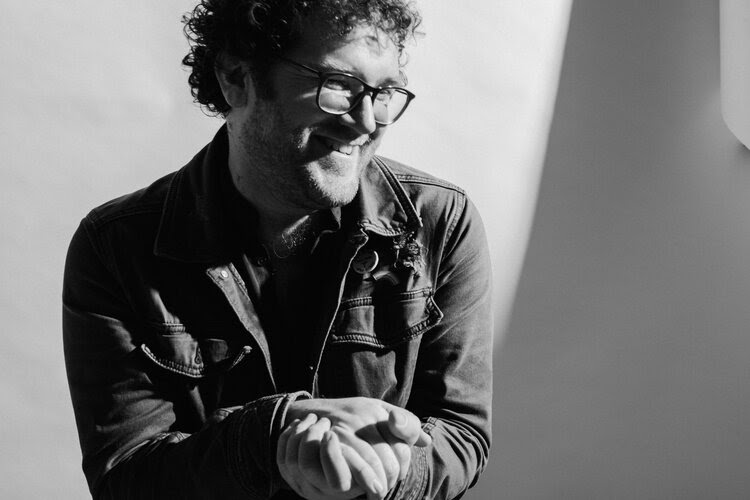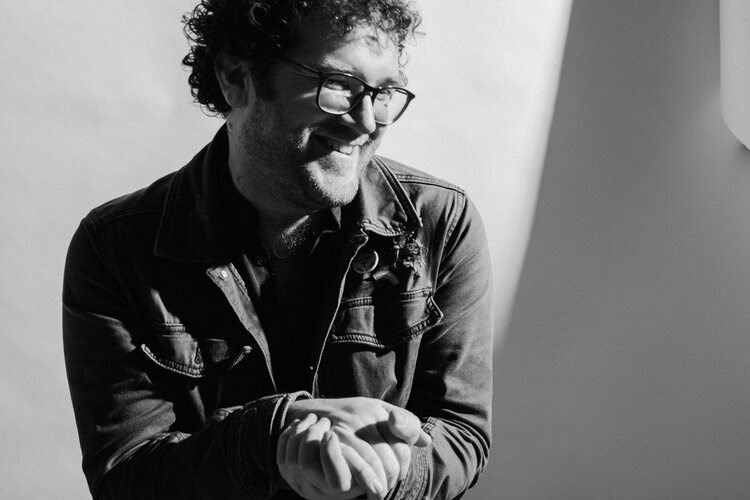By Lily Vining || Staff Writer

Franklin & Marshall College was delighted to welcome Padraig O Tuama, poet, theologian, and conflict mediator, as last week’s Common Hour speaker and guest reader for the Poets of Peace. Along with his poetry and prose publications, Tuama also recently led the Corrymeela Community (one of the oldest peace and reconciliation communities in Northern Ireland), co-founded the storytelling event Tenx9, and presented Poetry Unbound with On Being Studios.
In his Common Hour presentation, titled “Making Language Work: Powerful Words for Powerful Divisions. Lessons and Mistakes from an Irish Peace Maker & Poet,” Tuama shared poetry and stories detailing his work as a trained conflict mediator tasked with bringing people with polarizing views together. He discussed how he uses simple language to encourage vulnerability and foster listening and understanding, which helps people heal and grow.
Padraig O Tuama’s discussion could not be more timely, considering the conflict and division evident throughout our nation today. In the wake of numerous killings of African Americans by police and a polarizing election, our country appears more divided than ever. What we need is the experience of Tuama, who has mediated similar situations in his home country when polarizing political opinions left neighbors divided over the future of Northern Ireland.
In response to an audience question, Tuama discussed how to handle difficult conversations that are likely to take place in many households over the holidays. He encourages people to understand that certain topics can be triggering for others, listen rather than escalate the situation, and try to find a neutral ground. He reminds us that there are equal and opposite sides to every debate, but they all deserve a place at the (physical or virtual) table. He also urged not to fear certain conflicts because they offer both parties the opportunity to learn and grow. Let this be your lesson for coping with difficult family discussions during this holiday season.
It is tempting to walk away from Tuama’s discussion feeling hopeful that we as a nation can turn any and all conflict and division into peace if we only commit to listening to one another. However, the mediator also recognizes that in some instances, two groups cannot find common ground, either due to disagreements over fundamental values or because of an oppressive power dynamic. In these situations, Tuama says that “Meeting in the middle is not peace, it is failure,” since this too often results in the continued oppression of vulnerable groups. However, he still encourages professionals to put effort into educating the oppressor. They too, he stressed, are worthy of cooperation so that they can change. Tuama also suggested turning the conversation not on the issue itself, but on how each sides’ values influence how they feel about a divisive topic, like the right to life versus the right to choose. This may lead to a greater understanding of why others hold their beliefs even if it does not bring resolution.
In his reading later in the day, Padraig shared more candid and personal experiences that shaped his work. His readings and stories explored a range of topics, among which was his experiences as an LGBTQ+ person in the church. Despite the psychological pain and shame inflicted by the church during three exorcisms and an attempt at conversion therapy, Tuama still finds comfort in religion. His experiences even inspired him to work with religious communities to become more accepting of queer people. Padraig also shared a poem inspired by the loss of a close friend, which led to a discussion on writing as a form of lamentation. Lamenting is necessary, the poet said, even though in so many instances, people try to avoid it with denial or politics. The death of George Floyd, which brought hundreds of thousands of people to the streets to lament, is a prime example of the power of protest and emotion. Padraig, unsurprisingly, is a strong advocate for using words to express emotions. Lamenting is not something that should be shut down, he says, because it is “a way of human survival.”
The biggest lesson that Padraig O Tuama’s presentation and reading taught was that the power of language, both spoken and written, is strong enough to bring people of all backgrounds together. One of his poems, “We Are Not the Same,” protests the constant attempts to force uniformity among our diverse world community. Instead, we need to embrace being ourselves and together work towards equality.
First Year Lily Vining is a Staff Writer. Her email is lvining@fandm.edu
